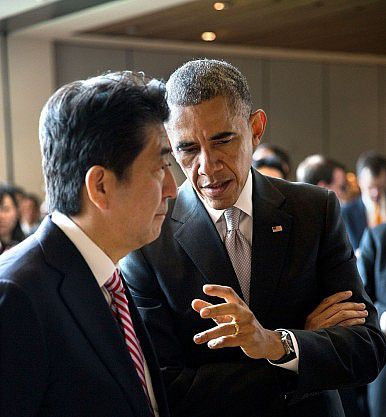The US-Japan Alliance and the Potential for Multilateral Cooperation with Vietnam
(Baonghean.vn) - Last week, the Center for the National Interest, a Washington-based think tank, released a new report on the prospects for trilateral cooperation between the US, Japan and Vietnam.
This report is part of a series of “Track 2” initiatives that have sought to explore opportunities for greater cooperation between the three countries over the past several years. Trilateral dialogues have become increasingly common as the United States seeks to supplement its existing network of allies and partners with new links, including those between the U.S.-Japan alliance and other countries.
The potential for greater trilateral cooperation between the United States, Japan, and Vietnam is explored in some detail in the report. Economically, the United States and Japan have contributed significantly to Vietnam’s development since the 1990s, and other opportunities exist in areas such as nuclear energy and Mekong subregion development. All three countries are also part of the ongoing Trans-Pacific Partnership (TPP) negotiations, which are expected to be concluded soon. Security-wise, the agenda is rich, given Japan and Vietnam’s shared concerns about maritime security (especially in light of disputes in the East and South China Seas) as well as humanitarian assistance and disaster relief.
 |
| US President Barack Obama and Japanese Prime Minister Shinzo Abe. Photo: White House. |
Momentum for this trilateral cooperation has been building over the years. The US rebalance to Asia, Japan’s “charm offensive” in Southeast Asia, and Vietnam’s quest for greater cooperation with other major powers have allowed the three sides of the triangle to become closer. Japan and Vietnam upgraded their partnership to an Expanded Strategic Partnership in March 2014, while the US and Vietnam signed a new defense agreement earlier this year, opening the door to future cooperation in defense trade and military equipment production. The US-Japan alliance, long seen as a cornerstone of regional peace and stability, has recently been revitalized by the allies’ recent review of their defense guidelines.
However, there are important constraints to further development of the US-Japan-Vietnam trilateral cooperation in terms of structure, level of cooperation, and the interrelationship of relationships beyond the trilateral. In Vietnam, as Masashi Nishihara notes in the report, nuclear energy development has recently stalled due to safety and legal issues. In Japan, it is unclear whether the legislation Prime Minister Shinzo Abe needs to pass to further Tokyo’s role in the region can muster enough support in the legislature.
Still, the possibility of realizing a trilateral relationship is not impossible, especially if current trends continue and all three countries commit to taking important steps to enhance cooperation. For example, in the report’s maritime security chapter, scholars Hoang Anh Tuan and Nguyen Vu Tung of the Diplomatic Academy of Vietnam propose a number of bold initiatives that the three countries could take, including a proposal for the United States and Japan to create a dialogue mechanism with other Southeast Asian partners, including Vietnam, that would include not only policy discussion, but also coordination and information sharing.
Some of the measures and mechanisms being publicly proposed today—including joint US-Japan patrols in the South China Sea—would have been unpalatable just a few years ago. But the Asian security landscape has changed dramatically in a short time, and nothing is forever impossible. So are newer arrangements like the US-Japan-Vietnam trilateral, despite the challenges they may face today.
Thu Giang
(According to The Diplomat)
